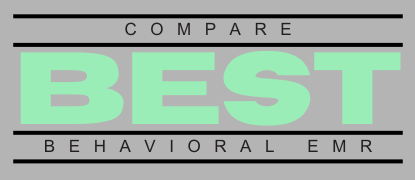
When searching for the right behavioral health EMR software, practice owners often focus primarily on core features like scheduling and clinical documentation. However, there are several essential EMR features frequently overlooked, features that can significantly enhance clinical productivity, patient satisfaction, and overall practice management efficiency. Understanding these hidden gems can transform your practice into a more efficient and patient-centered operation. Let’s dive into five essential EMR features that behavioral health practices often overlook.
1. Integrated Telehealth Capabilities
Even as telehealth becomes a standard practice, many behavioral health EMRs still lack robust telehealth integration. Practices often resort to third-party teleconferencing platforms, leading to inefficiencies and fragmented patient records. Look for an EMR solution that seamlessly integrates video visits directly into your clinical workflow. This integration enables:
- Simplified appointment scheduling and reminders
- Secure, HIPAA-compliant virtual sessions
- Automatic documentation of sessions into patient records
Integrated telehealth not only improves clinician productivity but also significantly enhances patient satisfaction by eliminating separate logins and confusing technical steps. If your current system doesn’t offer integrated telehealth, you may be missing out on substantial operational benefits.
2. Advanced Patient Engagement Tools
Behavioral health is inherently relationship-focused, yet many EMRs overlook the importance of patient engagement tools. Effective patient engagement features can foster stronger therapeutic alliances, improve treatment adherence, and reduce no-show rates. Consider EMRs offering:
- Automated appointment reminders via text or email
- Secure messaging platforms for clinician-patient communication
- Patient portals allowing easy access to treatment plans, progress notes, and billing information
According to research published by the National Institutes of Health, patient engagement directly correlates with improved behavioral health outcomes. Investing in an EMR with robust patient engagement tools can positively impact your clinical effectiveness and patient retention.
3. Customizable Documentation Templates
Rigid or overly generic documentation templates can negatively impact clinician efficiency and frustration levels. Clinicians spend significant time documenting sessions, time better spent providing quality patient care. A behavioral health EMR with customizable templates allows clinicians to:
- Create templates tailored specifically to therapy modalities and treatment approaches
- Reduce repetitive data entry by auto-populating common phrases or clinical terms
- Ensure compliance with documentation standards and payer requirements
Customizable templates streamline documentation, reduce clinician burnout, and help practices maintain compliance standards effortlessly.
4. Robust Reporting and Analytics Features
Many behavioral health practices underestimate the value of comprehensive reporting and analytics within their EMR system. Robust reporting tools help practice leaders make informed decisions about operations, finance, and clinical care. Key reporting features to look for include:
- Customizable dashboards for quick insights into practice performance
- Real-time reporting on productivity, patient outcomes, and billing metrics
- Compliance monitoring to identify documentation gaps or potential audit risks
By leveraging data analytics, your practice can proactively address inefficiencies, optimize billing processes, and enhance clinical outcomes.
5. Interoperability and Integration with Other Systems
Behavioral health practices rarely operate in isolation. Yet, many EMRs lack sufficient interoperability capabilities, creating information silos and unnecessary manual data entry. Essential interoperability features include:
- Integration with labs, pharmacies, and prescribing tools
- Compatibility with billing software and revenue cycle management (RCM) solutions
- Secure, standardized data exchange with other healthcare providers to ensure seamless continuity of care
Choosing an EMR with strong interoperability reduces administrative burdens, enhances care coordination, and boosts overall practice efficiency. Read more about interoperability in healthcare from HealthIT.gov.
How Can Your Practice Uncover These Opportunities?
If you’re feeling overwhelmed by the sheer number of EMR vendors and options on the market, you’re not alone. Finding the right combination of essential EMR features tailored to behavioral health practices can be challenging. This is precisely why we’ve created a streamlined process to help you identify the best EMR solution for your unique practice needs.
Take advantage of our free practice analysis today. Our EMR experts will review your current practice operations and help match you with an EMR solution that unlocks all these essential features and more.
Don’t risk missing out on critical EMR functionalities that can transform your behavioral health practice’s efficiency, patient satisfaction, and clinician productivity.
